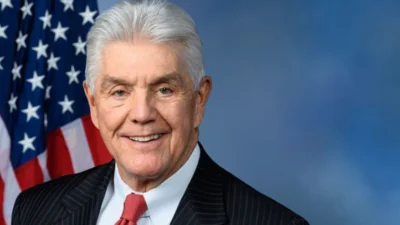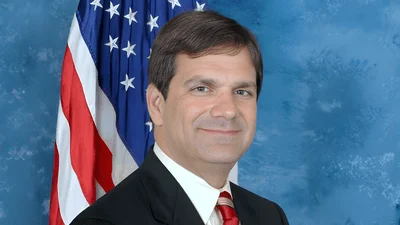Energy and Commerce Chairman Frank Pallone, Jr. (D-NJ) delivered the following opening remarks today at an Energy Subcommittee hearing titled, “The Fiscal Year 2023 DOE Budget:”
Secretary Granholm, thank you for joining us this morning to discuss the Department of Energy’s (DOE) Fiscal Year 2023 budget.
I want to start by commending President Biden’s recent aggressive actions to address gas prices for American consumers, including ordering a historic oil release from DOE’s Strategic Petroleum Reserve. There is no question that Russia’s invasion of Ukraine has increased gas prices around the globe and Big Oil is taking advantage of this crisis to pad its already outrageous profit margins.
The President responded decisively to those supply disruptions by releasing oil from our own strategic stocks and, just as critically, by convincing foreign allies to release a portion of their own oil reserves. Meanwhile, domestic oil production has increased significantly since President Biden took office, while natural gas production and liquefied natural gas exports are both at record highs.
Ultimately, the best way to secure our energy independence and lower prices for Americans is to invest in renewable energy made right here in the United States. Five decades of fossil fuel dependency have left us reliant on volatile commodities that are priced at the whim of global markets. Renewables were already the cheapest energy source even before oil and gas prices skyrocketed. If we truly want to lower prices and reduce our reliance on foreign adversaries, we must invest in renewable energy and domestic supply chains here in America.
We started the process of moving toward a cleaner, more secure, and consumer-friendly energy future by enacting the landmark Bipartisan Infrastructure Law last year, which includes $62 billion in funding that DOE will oversee.
This transformative law will modernize our infrastructure to strengthen our economy for the future. The Bipartisan Infrastructure Law not only invests in bridges and roads, but also in building domestic supply chains and the critical electric infrastructure we need to transition to cleaner, cheaper energy.
It invests billions in electric vehicle charging stations that give consumers a real choice and chance to save money by moving away from volatile oil markets. It also helps build our domestic renewable energy manufacturing and processing capacity for electric vehicles, batteries, and chargers, so they are built right here at home rather than in China. The bipartisan law also invests billions to modernize our electric grid so it is more resilient to ever-increasing extreme weather events and so we can bring more renewable energy to communities around the nation. I look forward to hearing how DOE plans to administer the law’s many programs and ensure American taxpayers reap the benefits of those investments.
Lowering consumer energy bills isn’t just about supply. Energy efficiency is a critical tool in our efforts to address the climate crisis and to lower energy bills for all Americans. But for four years, the Trump Administration delayed and ignored important deadlines for updating appliance efficiency standards that save consumers money.
Since taking office, President Biden and Secretary Granholm have “flipped the switch” back on for energy savings. They are moving forward on efficiency standards, including an announcement on Tuesday of two lightbulb efficiency rules that will save consumers nearly $3 billion on their annual utility bills. These two efficiency rules would also cut carbon pollution by 222 million metric tons over the next 30 years.
DOE also plays a central role in safeguarding our national security, especially as the federal agency responsible for oversight of our nuclear weapons stockpile. In recent years, that obligation has grown to also include protecting our nation’s critical energy infrastructure against cybersecurity threats. Under administrations of both parties, DOE has handled that role well, including leading the federal response to the Colonial Pipeline cybersecurity attack last year.
There is bipartisan agreement on this Committee that we must continue to empower the DOE and its Office of Cybersecurity, Energy Security, and Emergency Response, or “CESER,” to address evolving cybersecurity threats. I look forward to hearing from you today about your cybersecurity plans and how Congress can enhance DOE’s role as the lead agency responsible for protecting our critical energy infrastructure.
Thank you again for joining us today, Madam Secretary.
Original source can be found here









